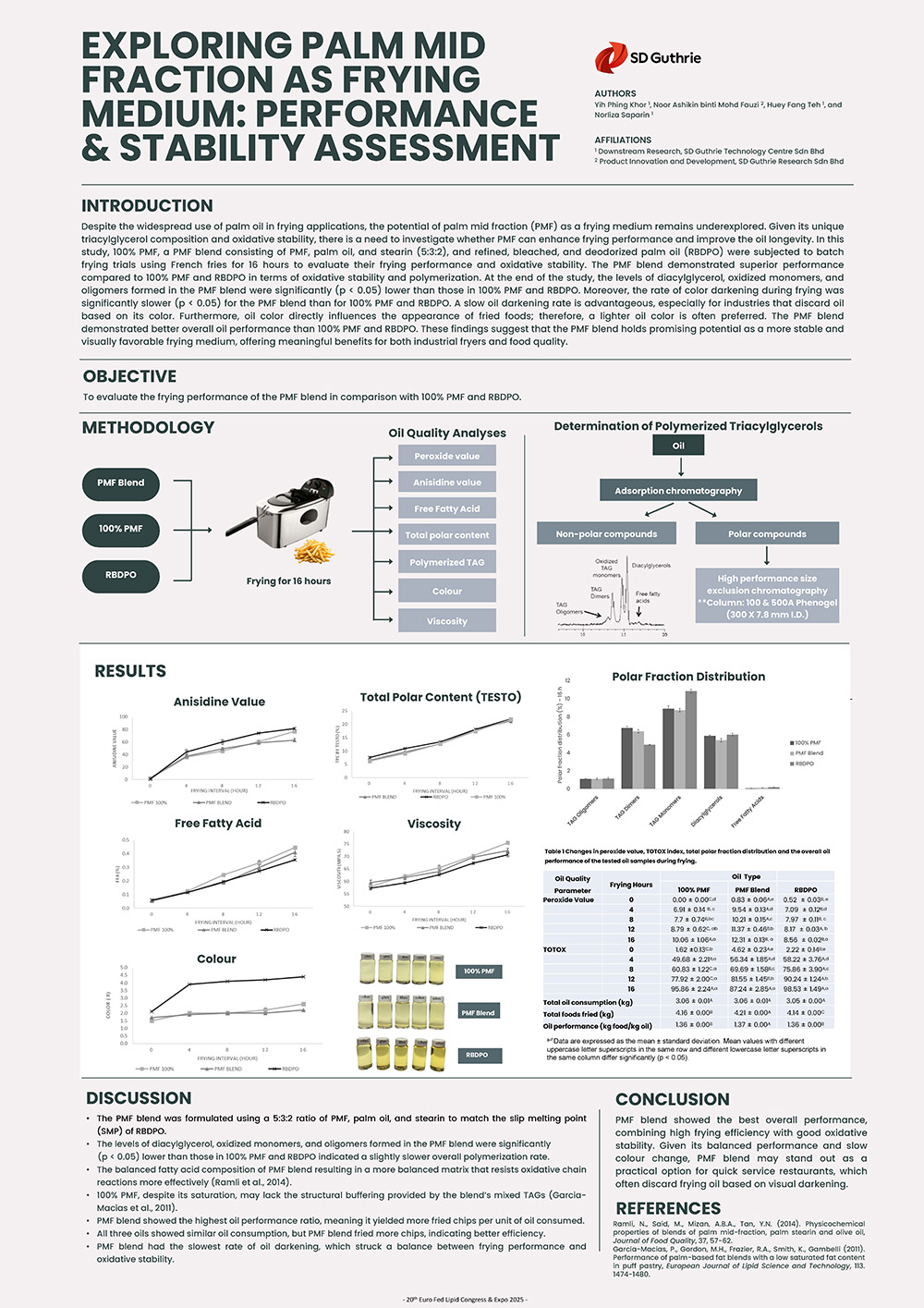Despite the widespread use of palm oil in frying applications, the potential of palm mid fraction (PMF) as a frying medium remains underexplored. Given its unique triacylglycerol composition and oxidative stability, there is a need to investigate whether PMF can enhance frying performance and improve the oil longevity. In this study, 100% PMF, a PMF blend consisting of PMF, palm oil, and stearin (5:3:2), and refined, bleached, and deodorized palm oil (RBDPO) were subjected to batch frying trials using French fries for 16 hours to evaluate their frying performance and oxidative stability.
The PMF blend demonstrated superior performance compared to 100% PMF and RBDPO in terms of oxidative stability and polymerization. At the end of the study, the levels of diacylglycerol, oxidized monomers, and oligomers formed in the PMF blend were significantly (p < 0.05) lower than those in 100% PMF and RBDPO. Moreover, the rate of color darkening during frying was significantly slower (p < 0.05) for the PMF blend than for 100% PMF and RBDPO. A slow oil darkening rate is advantageous, especially for industries that discard oil based on its color. Furthermore, oil color directly influences the appearance of fried foods; therefore, a lighter oil color is often preferred. The PMF blend demonstrated better overall oil performance than 100% PMF and RBDPO. These findings suggest that the PMF blend holds promising potential as a more stable and visually favorable frying medium, offering meaningful benefits for both industrial fryers and food quality.
Keywords: palm mid fraction; frying performance; oxidative stability; polymerization; oil darkening
